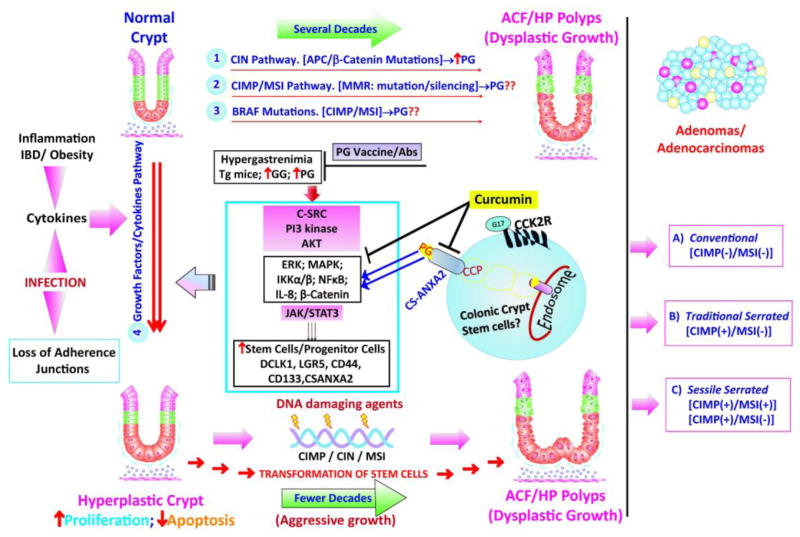Figure 1. Hypothetical Model of Molecular Pathways Associated with Development of Sporadic Hyperprolifative/Dysplastic/Adenomatous growths in the Colons: Role of Endocrine/Autocrine Progastrins.
athways 1–3 represent genetic/epigenetic mechanisms believed to be associated with the development of sporadic colonic growths/tumors in humans and rodent models of investigation (reviewed in 17). At least three sub-types of sporadic Adenomas have been described, based on phenotype and associated genotype (in terms of MSI/CIMP/CIN (aneuploidy)) (reviewed in 17). Many of these genetic/epigenetic changes, associated with pathways 1–3, can potentially increase the expression of autocrine progastrins (PG) in the colonic growths and serum of patients with CRCs, as described in the text. In addition a 4th pathway, termed growth factor/cytokine pathway, can significantly increase the risk for developing sporadic colonic growths, in response to DNA damaging agents and/or the indicated genetic/epigenetic changes, leading perhaps to more aggressive growths in a shorter time-frame. Risk factors, believed to be associated with the 4th pathway are indicated and may include: 1) elevated levels of endocrine/paracrine progastrins, as in Hypergastrenemic patients; 2) elevated cytokines/growth factors associated with inflammation/obesity/specific infections, as discussed in the text. The 4th pathway, associated with a sustained increase in the associated risk factors, likely results in sustained elevation of the indicated intracellular-kinases/transcription-factors, resulting in hyperproliferation of the affected colonic-crypts and possible transformation of the colonic-stem-cells, significantly increasing the risk for developing dysplastic/neoplastic growths. Abbreviations of key words used in here are described in the text. The role of specific molecules/pathways presented in here, were derived from a large number of reports in literature, referred to in the text.

